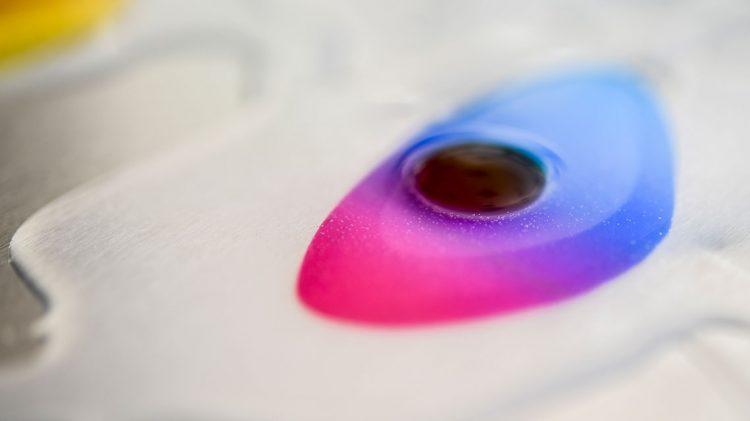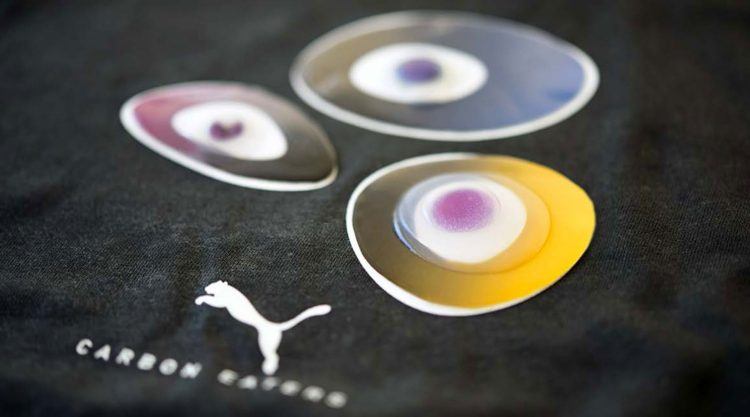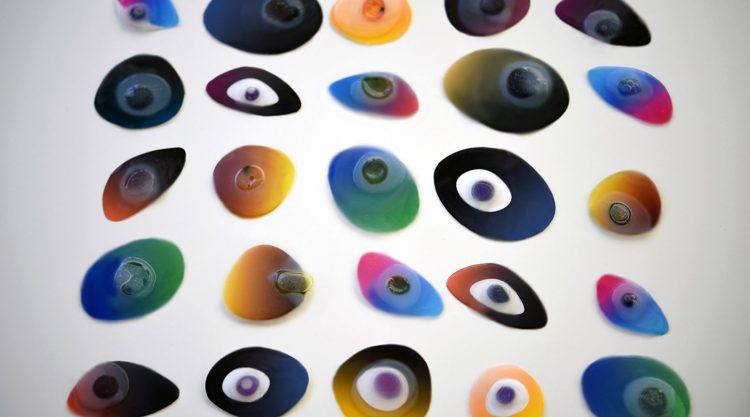
Can bacteria
make an athlete
faster?
PUMA and MIT Design Lab present biodesign research results
March 28, 2018PUMA and MIT Design Lab present biodesign research results
March 28, 2018Imagine you are outside for a run in the forest. After a while, you reach a road with cars passing by. And now your t-shirt changes its appearance to tell you that the air quality is slightly getting worse. And also your insoles advise you to slow down, because you are getting a bit jaded.
Sounds like a future vision? Actually, these features are research results from PUMA and the Massachusetts Institute of Technology (MIT) Design Lab. Since June 2017, PUMA and the MIT have been conducting research in the field of biodesign.
Biodesign is the practice of using living materials such as algae or bacteria to create products. It makes possible a football jersey made from the silk of a spider, a shoe box grown from mycelium, the root structure of mushrooms or just a t-shirt that informs its wearer about the air quality. With its research in that field, PUMA explores the new frontiers of biological design and fabrication to bring advances in science and biotechnologies to the development of sportswear. Furthermore, the research has also looked beyond current wearables and produced biologically programmable materials that change their shape and structure to become new types of alive and adaptive packaging.
These findings will be showcased at the Milan Design Week. The exhibition will focus on how the next generation of athletic footwear, apparel and wearables can adapt in real-time by using living organisms to enhance performance. The exhibition will show four experiments: a breathing shoe, a deep learning insole, carbon eaters and adaptive packaging.
The biologically active breathing shoe enables personalized ventilation by growing its own air passageways that keep the feet cool. The deep learning insoles improve the athlete’s performance through real-time biofeedback. It uses organisms to measure long and short-term chemical phenomena that indicate fatigue and well-being. The microbially-active t-shirt responds to environmental factors by changing its appearance and so informs about changes in the air quality.
So, soon your shoes might keep your feet cold automatically and your insoles will ensure that you deliver optimal performance every time you work out.
The Milan Design Week runs from 17-22 April 2018.



